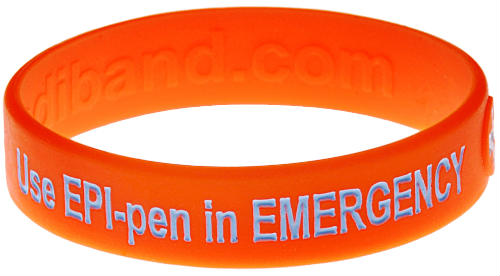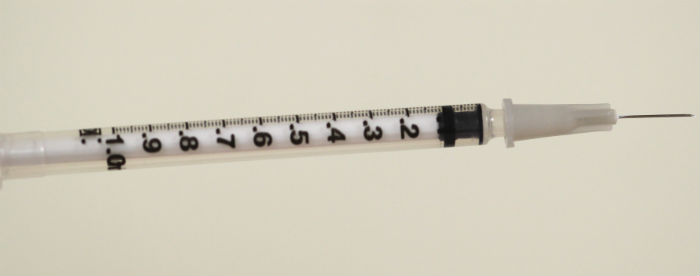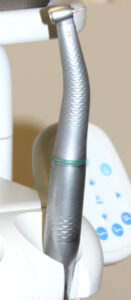As a very busy dental office, we’ve seen patients faint more than once. And on the internet, there are tons of comments about patients passing out. In fact, most people mistakenly assume that when something like this happens, it is because they are allergic to something that the dentist used. In nearly all cases, that is an incorrect conclusion.
So, why is it that some people faint and/or pass out at the dentist? And what causes it?
Common Medical Emergencies in Dental Offices
In a widely cited survey, the number one emergency seen in a dental office is fainting – or more appropriately called syncope (sources: here and here). In fact, in one study, syncope accounted for 53% of all emergencies in a dental office (source: here). The second most common emergency is hyperventilation.

Many mistakenly assume that fainting at the dentist is due to an allergic reaction.
To many individuals who’ve had adverse reactions at the dentist, this fact can come as quite a surprise. The scenarios that most patients believe are occurring – usually acute allergic reactions as well as cardiac events – very rarely occur.
Fainting vs. Passing Out vs. Vasovagal Syncope
Generally speaking, the above three terms are all roughly the same, with the term vasovagal syncope being the medically appropriate one. It can be defined as a temporary loss of consciousness due to a decrease in blood flow to the brain.

This is the most common trigger for an episode in a dental office.
Your brain is in constant need of oxygen. If blood flow to the brain is temporarily diminished, you are no longer able to function, and you lose consciousness. In vasovagal syncope, a trigger (such as the sight of a needle) will cause a susceptible individual’s nervous system to over-react and cause certain physiologic changes which can lead to the decrease in blood flow to the brain.
If this happens, it most often results in you falling to the floor, which then puts your head at the same level as your heart. This change in position, along with the removal of the stimulus which caused the episode (more on this later), then allows for adequate blood to flow to your brain, and you very quickly regain consciousness.
Common Triggers of Vasovagal Syncope in a Dental Office

The dental handpiece or “drill” can cause some to pass out.
A dental office is a unique setting in that the patients walking through the door typically don’t want to be in the office, but they know they have to. This is why passing out episodes occur quite frequently. The most common triggers seen in a dental office include:
- The sight of the needle (this is the number 1 trigger).
- The slight sting of the dental injection.
- The sight of blood.
- The smell of an office.
- The high pitched squeal of the dental handpiece.
- And others.
So, if a trigger is experienced by a susceptible individual, the syncope episode can commence.
A Typical Fainting Episode at the Dentist
Each and every episode of passing out is unique, as is every patient. The following is a classic example of what someone might experience in a vasovagal syncopal episode at the dentist:
- You don’t like coming to the dentist but you know you have to get a filling. You have been dreading it for over a week.
- You are called in from the reception area. While walking in, you see a needle that looks large and intimidating.
- The dentist comes in and says hello. At this point, you’re still thinking about the needle, and you begin to feel somewhat lightheaded.
- You hear the dentist talking to the assistant but their voices seem muffled. You notice that you are breaking out into a sweat, even though the temperature was perfect just a couple of minutes earlier.
- You begin to have a feeling of nausea and your thoughts appear fuzzy. Your muscles suddenly feel incredibly weak and you don’t even think you could lift your hand. You attempt to say something but you can’t muster the strength or thoughts to put words together.
- Your vision appears compromised, first by seeing bright lights, and then with black or cloudy vision. You are sitting upright but all you want to do is lie down…
Next thing you know, the chair is completely reclined and you are lying horizontally in it. The dentist and the assistant are sitting next to you. The dentist is looking at you intently and is feeling your pulse on your wrist. He/she notices you waking up and says:
“Well, it looks like you fainted for a bit. Don’t worry. It happens more often than you think. We’ll keep you reclined for a couple of more minutes and then we’ll slowly bring the chair up.”
Final Thoughts
For the vast majority of patients, passing out will simply never occur. But a small subset are susceptible. We can help by providing:
- A relaxed and non-judgmental atmosphere.
- Nearly pain-free injections.
- IV sedation (but don’t worry – we have ways to get the IV in without you passing out).
- And more.
Call us at (203) 799 – 2929 or visit this page to request an appointment.
